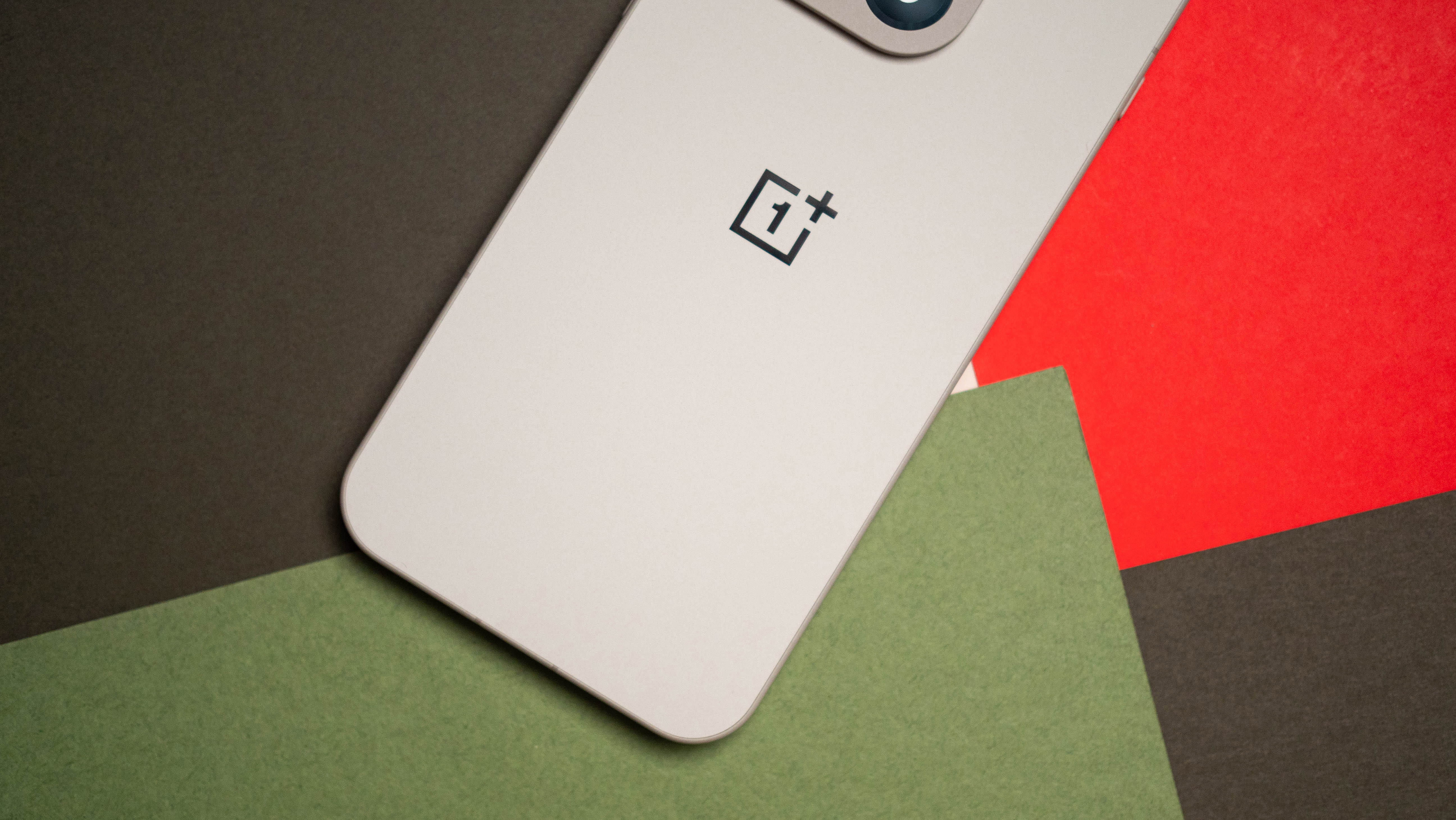Small but mighty: these are the 6 BEST small phones of 2025
Good things come in small packages.
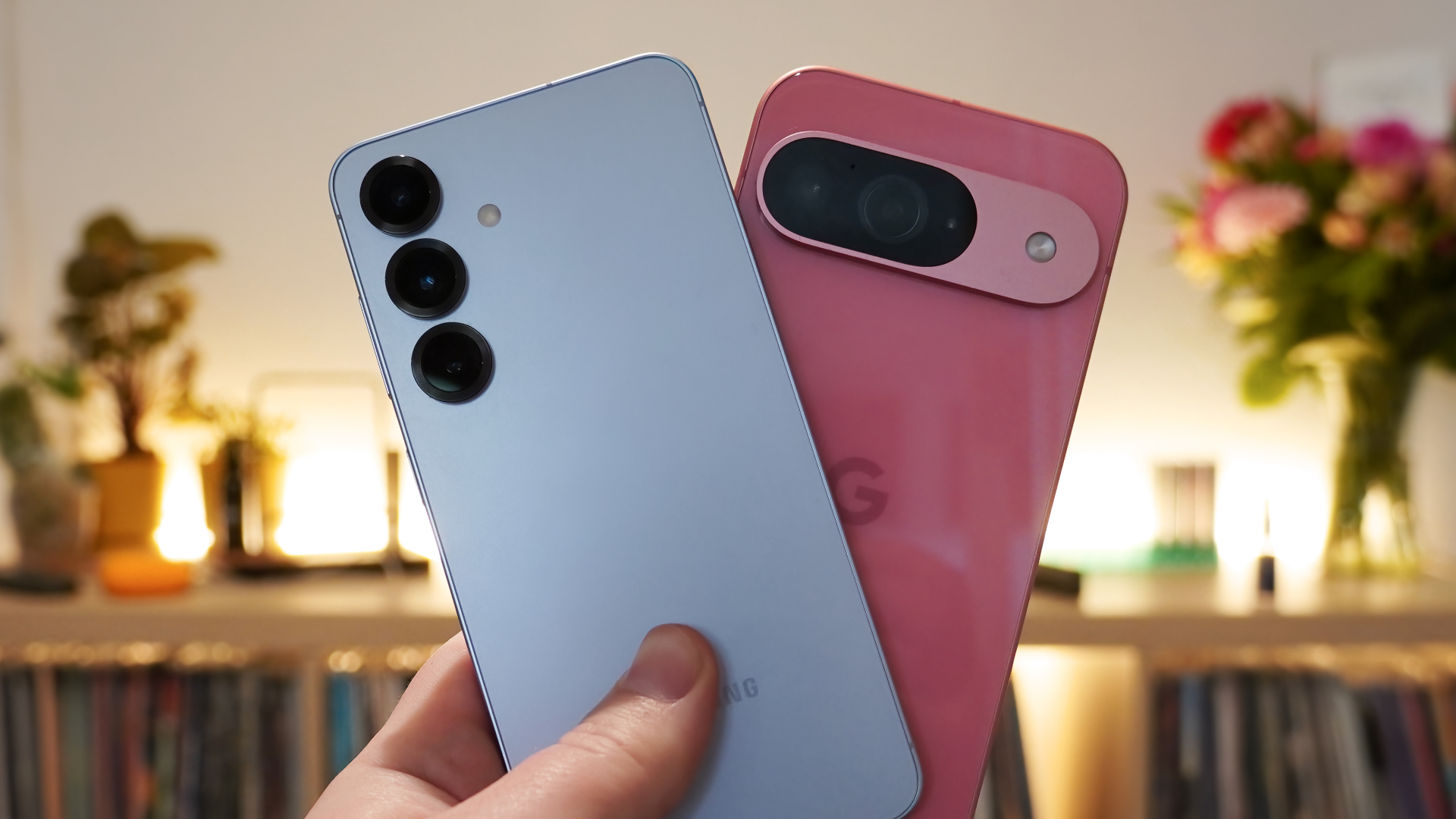
At a glance
1. Best overall
2. Best value
3. Best foldable
4. Best last-gen
5. Best AI features
6. Best value foldable
How to choose
How we test
Bigger isn't always better when it comes to smartphones. While some people love having a large-screened phone, others still prefer the compact design of a phone with a screen that almost doesn't rival a tablet. A sleek, small, and ultra-thin phone slides nicely into the pocket and is easy to hold in the hand. It might even fit right in your front shirt pocket or clutch purse.
What defines a small phone? It's typically one that has a screen 6.3 inches or smaller in size. Yes, in today's day and age, a phone with a 6-inch-plus screen is considered "small." An alternative to a small phone if you still want the benefits of a larger screen is a foldable device. You get the best of both worlds, though these cost a lot more as well.
As of today, the best small phone you'll find is the Samsung Galaxy S25. Equipped with a fast processor, great cameras, and seven years of software and security updates, you get tremendous bang for your buck along with a comfortably pocketable size.

Namerah enjoys geeking out over accessories, gadgets, and all sorts of smart tech. She spends her time guzzling coffee, writing, casual gaming, and cuddling with her furry best friends.
At a glance
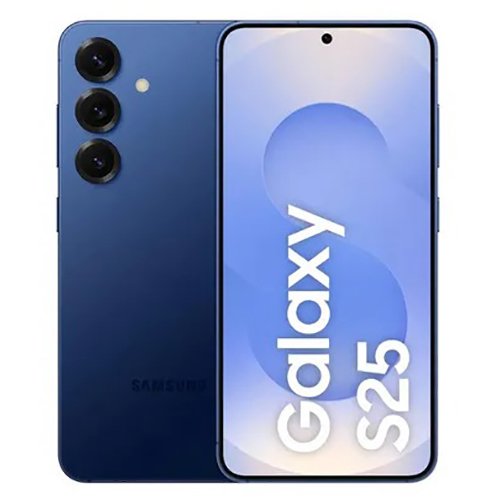
Best overall
The Galaxy S25 is a fairly compact phone at just 2.78 inches wide, but still manages to pack in a 6.2-inch display. It's also lighter than the previous generation.
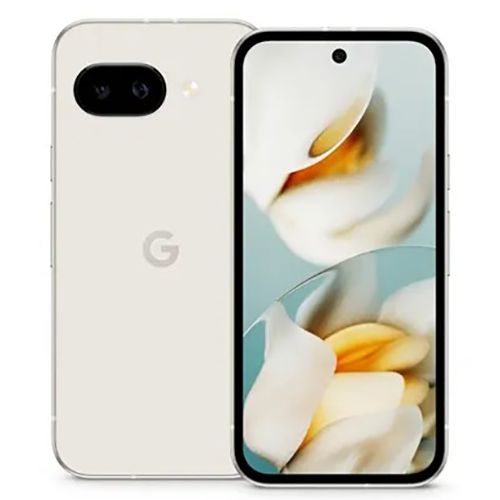
Best value
Retailing for under $500, the Pixel 9a boasts outstanding camera tech, the same processor found in the Pixel 9 and Pixel 9 Pro, and a sleek and compact design.
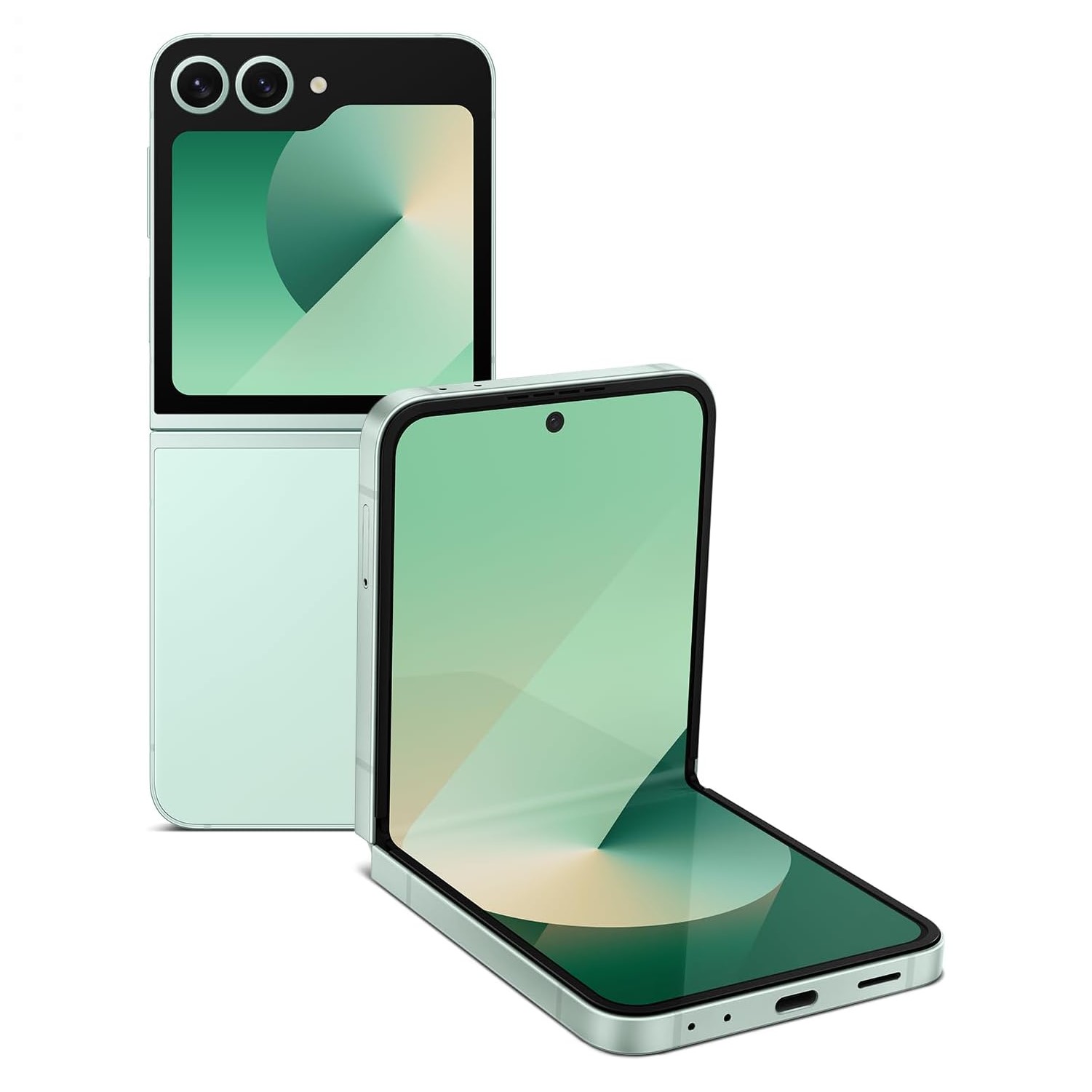
Best foldable
Thanks to thoughtful, foldable construction, the Galaxy Z Flip 6 lets you enjoy the benefits of a 6.7-inch display with the pocketable form factor of a small phone.
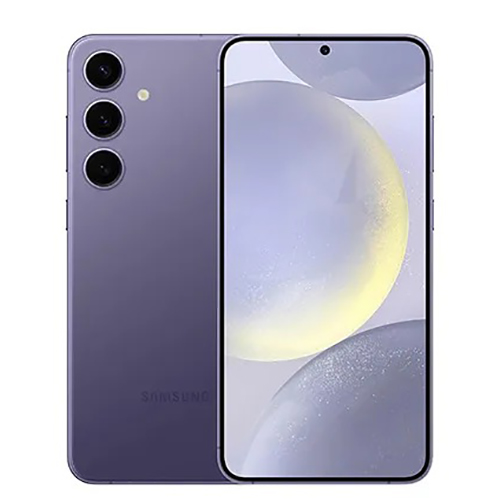
Best last-gen
The Galaxy S24 is the best last-gen compact phone thanks to its handy size and great software. It's nearly as powerful as the S25 and has the same set of cameras.
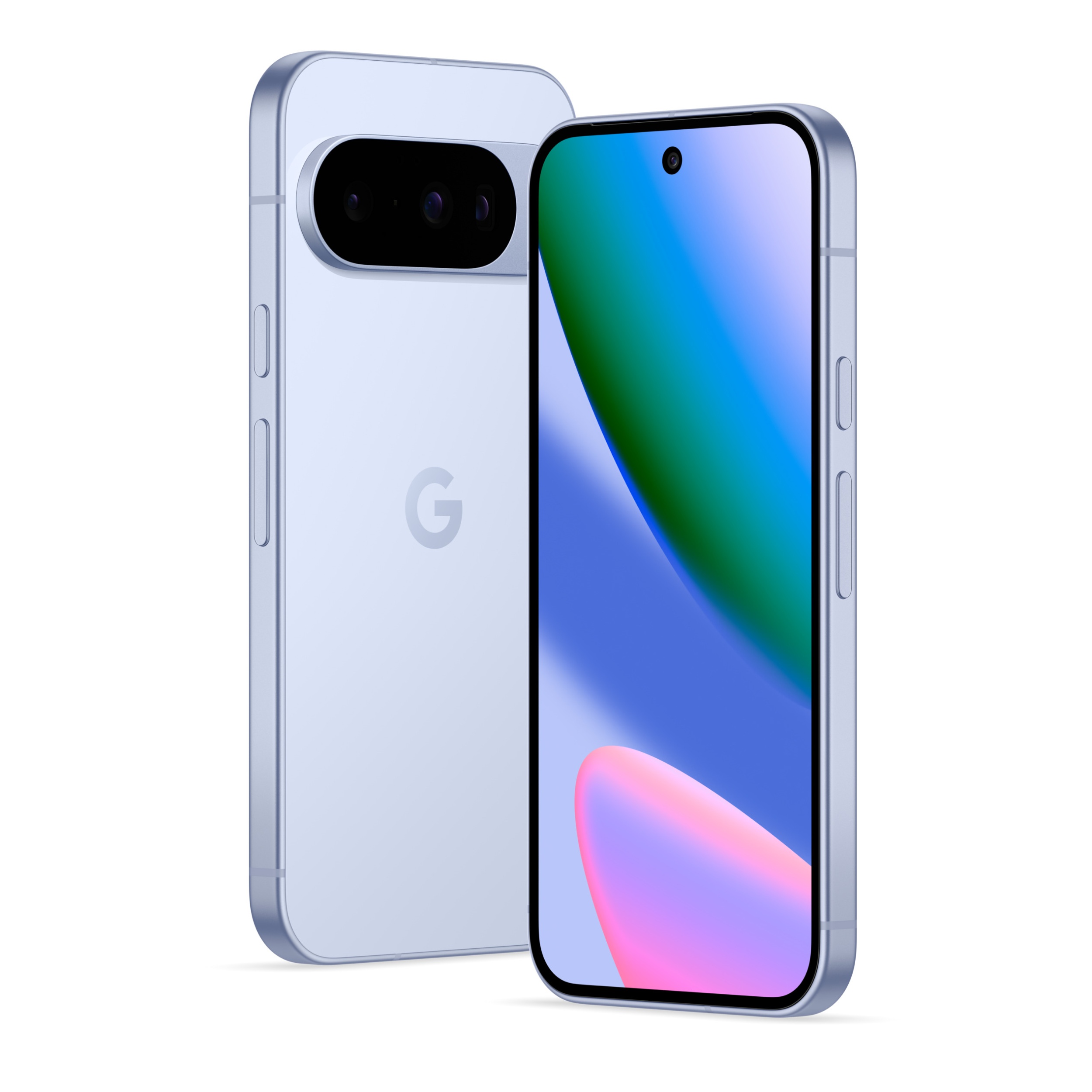
Best AI features
The Pixel 10 has the same size display as the Pixel 9a and its physical dimensions are roughly the same, making it an excellent premium alternative. It also comes with cutting-edge AI features that you won't find in other Pixels.
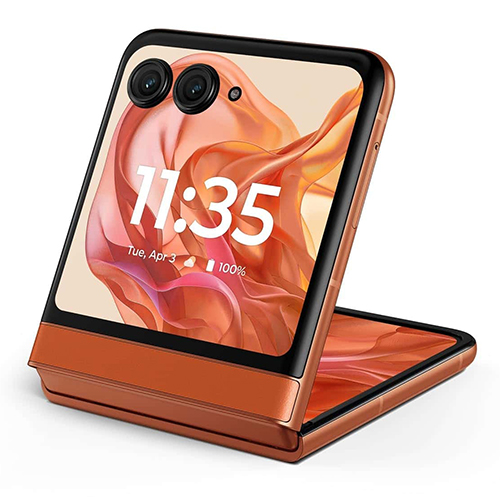
Foldable for less
Enjoy the best of both worlds for less than you'd pay for a traditional phone with this snazzy device that folds out to reveal a 6.9-inch screen. But when it's closed, you get a super-compact size and a useful 3.6-inch external screen for accessing basic tasks.
Best overall
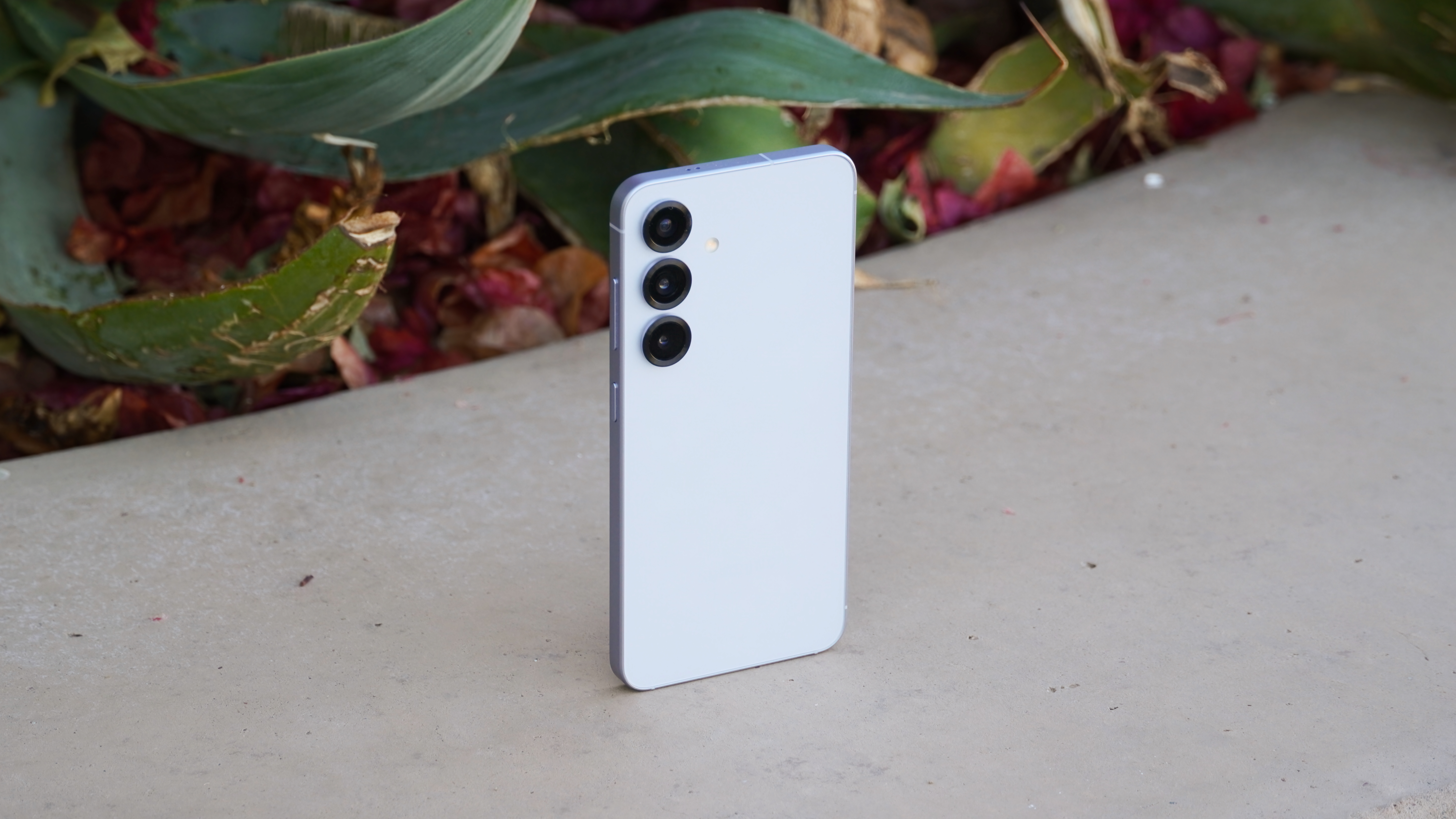
Specifications
Reasons to buy
Reasons to avoid
The Samsung Galaxy S25 offers a few notable improvements over the S24 like 12GB of RAM as standard, Wi-Fi 7, and Qualcomm's latest processor. But beyond that, it's very similar to its predecessor. It is however the best compact phone money can buy in 2025 since Samsung has further refined the design, making the phone even slimmer and lighter than the previous model without compromising durability.
Coming in at the same price as the S24, the Galaxy S25 offers good value as you get the latest and most powerful hardware for gaming and multitasking. We found the performance to be top-notch in our review, and we liked the fact that the phone throttles performance in a linear fashion with sustained loads. This helps keep the temperature low so it's not too hot to handle, and it doesn't drain the battery.
Unfortunately, there isn't much in terms of upgrades for the cameras, display, and battery capacity. They all do a solid job but it's something we've seen before. The S25 gets seven years of OS upgrades and it will have exclusive access to new Galaxy AI features that probably won't come to the S24. If you want the absolute best compact phone today, you can't go wrong with the Galaxy S25.
Keep in mind that the Samsung Galaxy S26 is likely coming in January 2026 and while we don't have official details yet, some rumors suspect the base model will be much slimmer if not smaller.
Attribute | Quick look | Score |
|---|---|---|
Display | Bright AMOLED panel with adaptive 120Hz refresh rate | ★★★★☆ |
Design | Slimmer and lighter than the S24 | ★★★★★ |
Price | Standard base-level flagship pricing | ★★★★☆ |
Camera | Same decent ones from last year but not impressive enough | ★★★☆☆ |
Performance | Performs like the powerhouse it is | ★★★★★ |
Battery life | Lasts you all day long and then some | ★★★★☆ |
Updates | Seven years is too good of a promise | ★★★★★ |
Best value
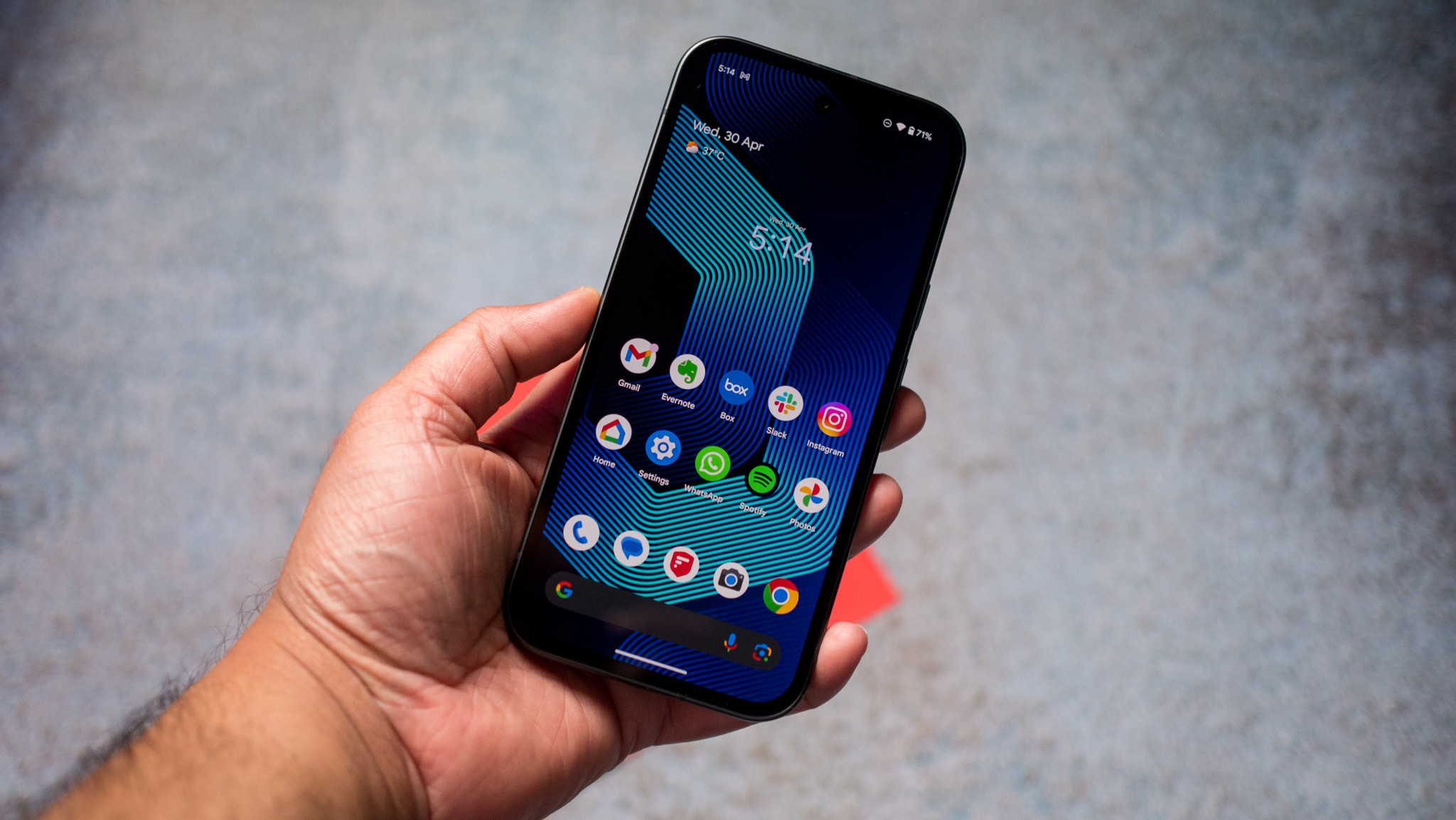
Specifications
Reasons to buy
Reasons to avoid
Google's Pixel A-series has long been a value leader since the series was introduced. While most A-series phones have been on the smaller side, the company often pairs the diminutive size and price with equally diminutive specs. Like the 8a, however, the Pixel 9a can be considered a "value flagship" phone that also doubles as the best small phone you can buy.
Every time I pick the phone up and use it, I marvel at how this phone only costs $500 and yet feels so darn premium in every way. The processor, display, and storage is the same as you'll find in the more expensive Google Pixel 9. In fact, the only real differences include a slightly domed design for the cameras. The Pixel 9 includes slightly better cameras, offers faster charging, and has more RAM.
Along with the incredible battery life, the best yet on a Pixel phone, the Google Tensor 4 chip, the same included in the higher-end phones, "destroys the competition for browsing, gaming, and AI," says our reviewer. From the haptics to the rich stereo sound, this phone is a lot of value in a small package.
The Google Pixel 10a is rumored to be coming soon, but based on early leaks, it might not represent a huge jump from the 9a, expected to have the same processor and similar hardware design. Either way, the 9a remains a solid pick if you want a still current and smaller phone.
Attribute | Quick look | Score |
|---|---|---|
Display | Great for everyone but PWM-sensitive folks | ★★★★☆ |
Design | Bold colors, beautiful and comfortable design | ★★★★★ |
Price | Impossibly good price point | ★★★★★ |
Camera | Signature best-in-class Pixel cameras | ★★★★☆ |
Performance | AI features are awesome but it can't handle gaming | ★★★★☆ |
Battery life | Slow charging and middling battery | ★★★★☆ |
Updates | Industry-leading seven years of updates | ★★★★★ |
Best foldable
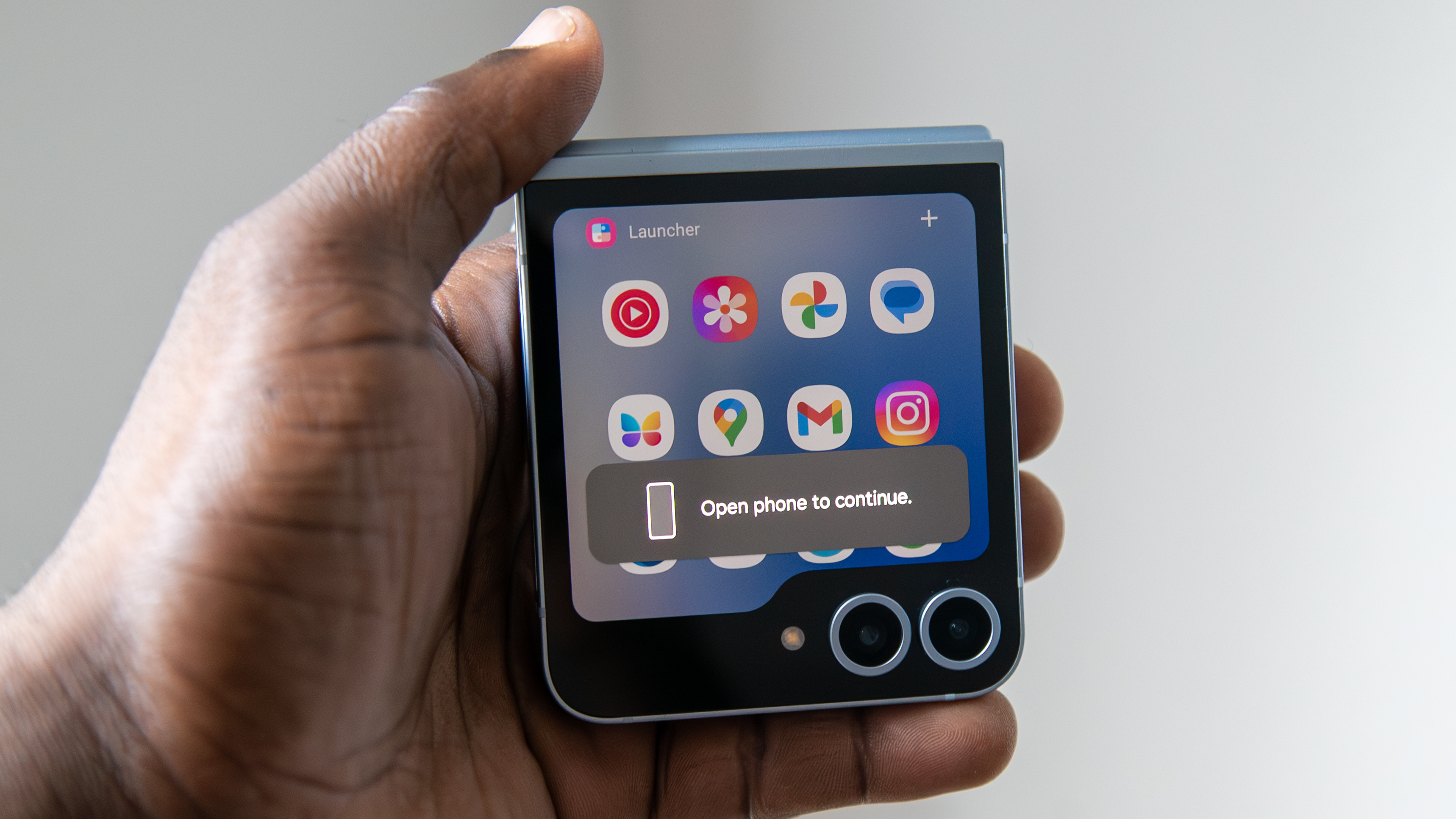
Specifications
Reasons to buy
Reasons to avoid
If there's any one specific reason to get a foldable phone, it's to fit a bigger display in an actual pocketable form factor. That's precisely why the Samsung Galaxy Z Flip 6 is the best foldable phone for fans of smaller phones. Case in point, it might have a giant 6.7-inch display on the inside, which is anything but "small" or pocketable. But the Flip 6 folds in half when you're done with it, giving you the convenience of a small phone size and a big screen when you need it. I don't know about you, but I'm a '90s kid so the nostalgia factor of flip phones is also a big draw for me.
With the Galaxy Z Flip 6, Samsung also boosted the size of the battery, so you can expect longer battery life per charge compared to the Flip 5. The Z Flip 6 is a hair thinner when folded, but otherwise is roughly the same size as the previous model. The new Snapdragon 8 Gen 3 processor makes everything about the phone better, including the camera experience.
Samsung has finally given the Flip 6 an official protection rating against solid particles, thanks to the IP48 rating. Once again, Samsung has continued to choose refinement over dramatic transformation; choose this phone and you'll be getting one of the most enjoyable and unique small phone experiences around.
The Samsung Galaxy Flip 7 is a newer option worth considering, but keep in mind that both the inner and outer screens are larger at 6.9- and 4.1-inches, respectively. Still, you get a compact form factor with an edge-to-edge screen that fits more screen real estate in a still small package, an impossibly thinner design, improved battery life, and more. So that model is worth considering, too, if you're willing to go a bit bigger in dimensions and screen but also enjoy a thinner overall footprint.
Attribute | Quick look | Score |
|---|---|---|
Display | Internal display is nicer than the external one | ★★★★☆ |
Design | Classic foldable form factor modelled after flip phones | ★★★★★ |
Price | Pretty darn expensive as it's a foldable | ★★★☆☆ |
Camera | Solid cameras with improved primary sensor | ★★★★☆ |
Performance | Snapdragon 8 Gen 3 for Galaxy is an absolute beast | ★★★★★ |
Battery life | Good uptime but slow charging speed | ★★★★☆ |
Updates | Samsung's top-notch seven-year promise | ★★★★★ |
Best last-gen
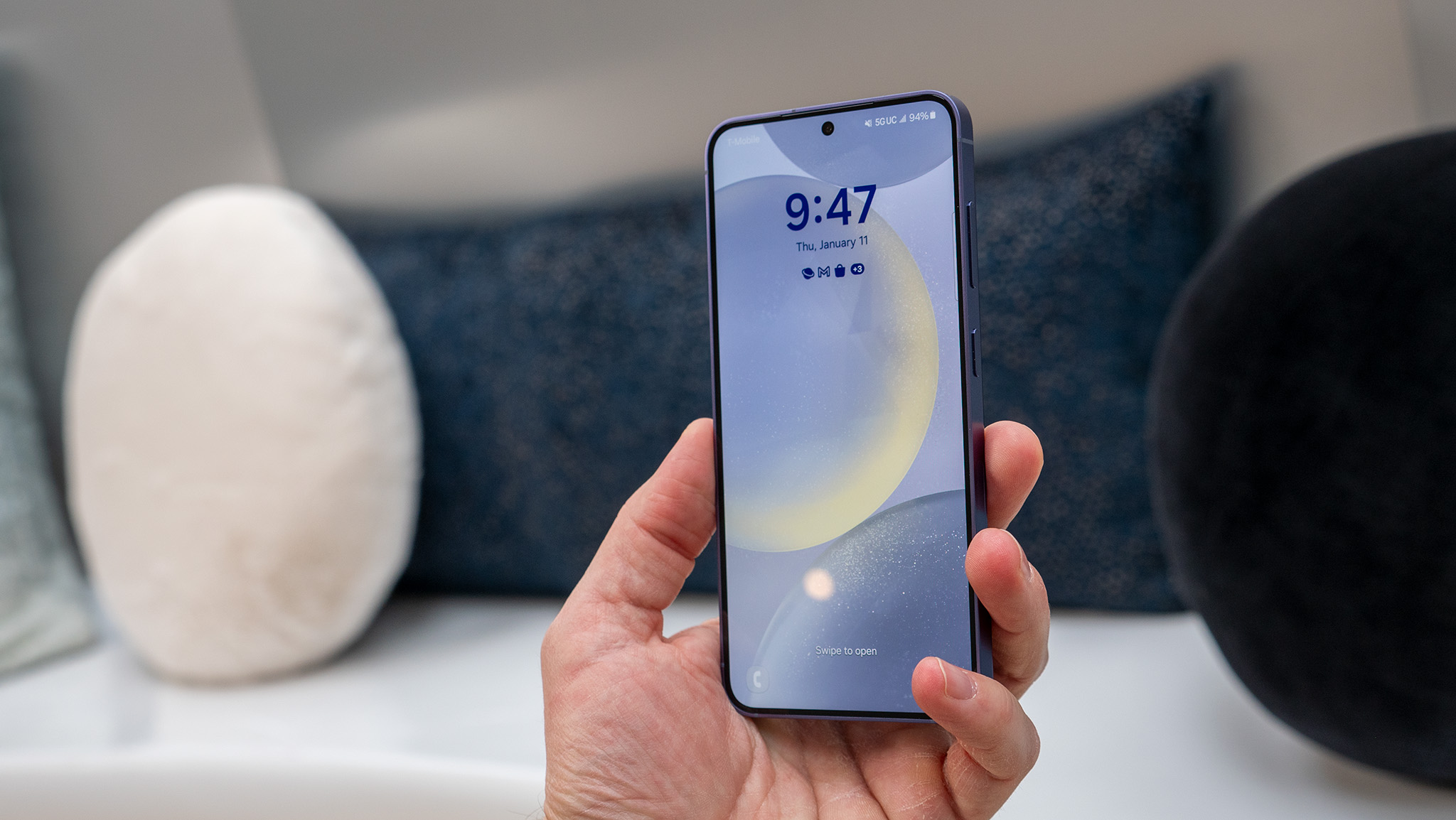
Specifications
Reasons to buy
Reasons to avoid
The base Galaxy S24 is still one of the best Android phones with most of the bigger phone's best features. Even though the S25 is grabbing the spotlight, the S24 can still be found online at discounted prices making it the best last-gen compact phone.
The Galaxy S24 comes with some notable upgrades over the S23, like the battery, which gets a shot in the arm to take it from 3,900mAh to 4,000mAh with support for 25W wired charging and 15W wireless charging. The camera system is led by the tried and true 50MP sensor with a 10MP telephoto and 12MP ultrawide camera helping out. Be careful buying an international model as some are fitted with the Exynos 2400 SoC which is a solid chip, but not as capable as the Snapdragon 8 Gen 3 fitted to the U.S. model.
When it comes to carrier support, just about every carrier will activate the S24 without issue. Support for 5G on the major carriers including Verizon and AT&T's mid-band 5G is present with mmWave on the US model. Finally, Samsung is offering an impressive seven years of software updates for the S24 so you know your phone will be up-to-date for years to come.
Attribute | Quick look | Score |
|---|---|---|
Display | Improved PWM dimming with fantastic visuals and brightness levels | ★★★★★ |
Design | Curved edges meet a sleek, compact form factor | ★★★★☆ |
Price | Standard base-level flagship pricing | ★★★★☆ |
Camera | Same decent ones from last year but not impressive enough | ★★★☆☆ |
Performance | Performs like the powerhouse it is | ★★★★★ |
Battery life | Lasts you all day long and then some | ★★★★☆ |
Updates | Seven years is too good of a promise | ★★★★★ |
Best AI features
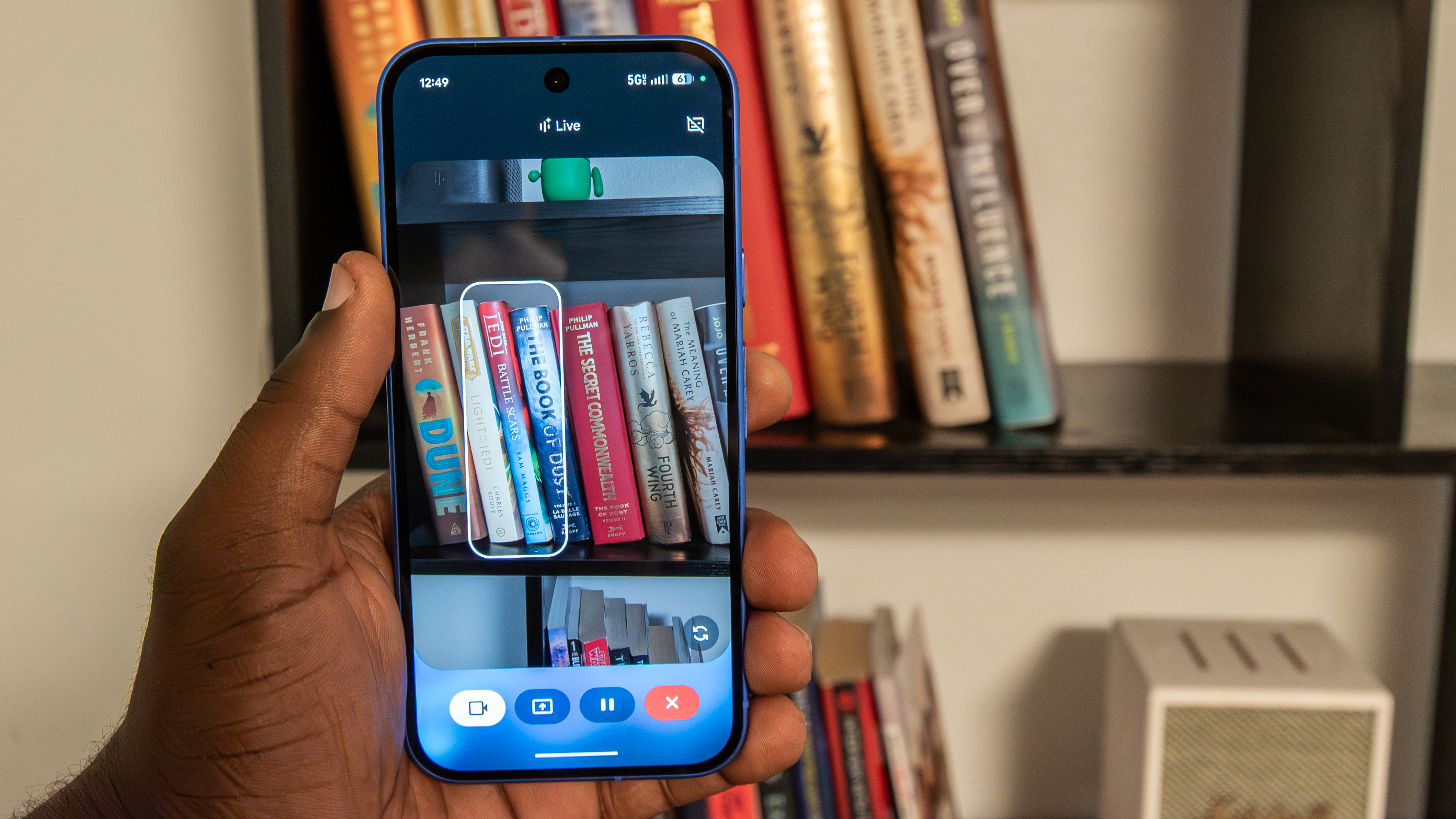
Specifications
Reasons to buy
Reasons to avoid
The Google Pixel 10 might not seem particularly impressive over a Pixel 9 at first glance, but the changes to the design, the larger battery, and its new AI features kind of make up for the increase in price. The Pixel 10 has similar dimensions to the Pixel 9, so it's compact and sleek though a tad thicker with a wider camera bar.
Software is once again the highlight of the Pixel 10, thanks to novel and useful AI tools. The new Tensor G5 chipset allows the phone to run Gemini Nano with Multimodality for understanding text, images, and audio, and process results on-device. New GenAI tools allow you to add objects and visual elements to enhance existing images.
Gemini AI Live is baked right in so this phone functions like your own little personal assistant. The Pixel 10 is also guaranteed to get seven years of OS and security updates too, making it future-proof. There are handy new features and tools, too, like Daily Hub for providing useful information and recommendations at-a-glance, Pixel Journal, and Magic Cue, which can anticipate what you need across apps and intelligently provide background assistance.
The cameras are surprisingly a slight downgrade from the Pixel 9 but that comes at the expense of a pretty awesome 5x telephoto camera that our reviewer finds works better than the zoom sensors on many other competing phones from other brands.
Personally, I'd splurge on the Pixel 10 Pro over the Pixel 10, which has the same size screen but notable upgrades in RAM and cameras with a higher resolution display and glossier, sleeker frame. It'll cost you an extra $200 but you get more power in a phone that's the same size.
Attribute | Quick look | Score | Header Cell - Column 3 |
|---|---|---|---|
Display | Stunning and bright with crip picture quality | ★★★★☆ | Row 0 - Cell 3 |
Design | Attractive new design with cool colors like the new Indigo | ★★★★★ | Row 1 - Cell 3 |
Price | Similar starting point as Galaxy S25 | ★★★★☆ | Row 2 - Cell 3 |
Camera | State-of-the-art photography and AI features | ★★★★★ | Row 3 - Cell 3 |
Performance | Tensor G5 brings useful AI features | ★★★★☆ | Row 4 - Cell 3 |
Battery life | About a day's worth or a bit less, slow charging | ★★★☆☆ | Row 5 - Cell 3 |
Updates | Stellar seven-year guarantee | ★★★★★ | Row 6 - Cell 3 |
Best value foldable
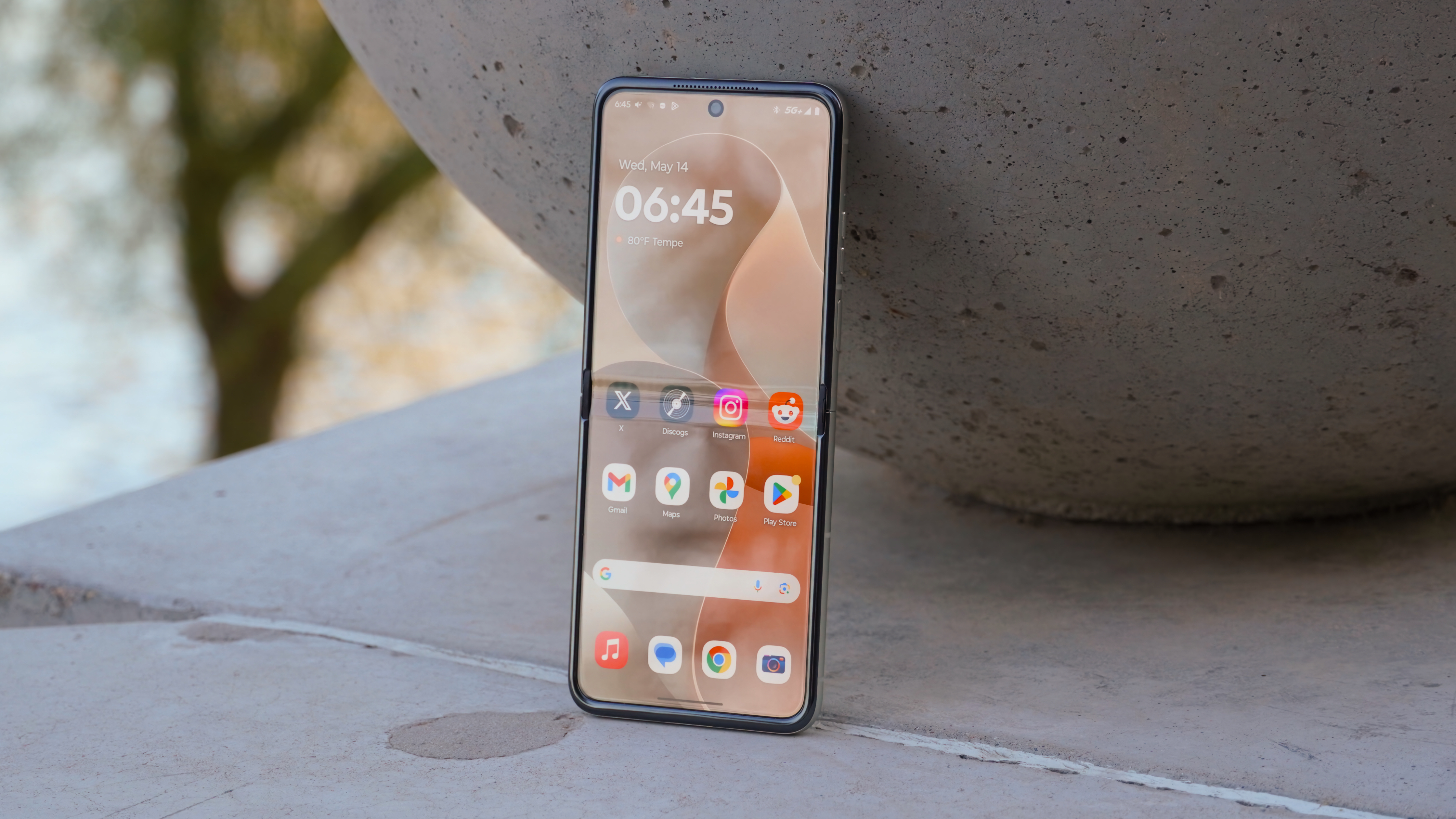
Specifications
Reasons to buy
Reasons to avoid
Sure, the Samsung Galaxy Z Flip 6 is the one we'd name the best foldable phone. But if you're looking for a really affordable small-screened phone but you feel like you might need a big screen now and then, the Motorola Razr 2025 is the answer.
Even though it's fairly large once unfolded with a massive 6.9-inch screen, you can use it folded up for basic tasks, which you can access from the smaller external screen, that measures just 3.6 inches in size. This includes items like widgets for calls and messages, calendar events, weather updates, even playable games.
The phone is an upgrade from the previous gen, meeting IP48 certification against booth dust and water. Combined with the titanium-reinforced hinge, you can open and close this phone to your heart's desire and enjoy both the small screened and large screened experiences.
While our reviewer found that performance lags at time with the processor, given the price, the Motorola Razr 2025 is a solid entry into the foldables space if you just want to test the waters. The battery life is excellent, he also found, which is a huge selling point. It takes pretty decent photos, too, and you get access to premium AI features as well.
The only downside here is that you only get three years of software support and four of security, so it isn't going to last as long as a model like the Samsung Galaxy Z Flip 6. But if you want an affordable foldable with a usable external screen so you can keep it small when needed, you won't be disappointed.
Attribute | Quick look | Score | Header Cell - Column 3 |
|---|---|---|---|
Display | Stunning and bright with crip picture quality | ★★★★☆ | Row 0 - Cell 3 |
Design | Attractive new design with splashy colors | ★★★★★ | Row 1 - Cell 3 |
Price | Same starting point as Galaxy S24 | ★★★★★ | Row 2 - Cell 3 |
Camera | State-of-the-art photography and AI features | ★★★☆☆ | Row 3 - Cell 3 |
Performance | Tensor 3 brings useful AI features | ★★★☆☆ | Row 4 - Cell 3 |
Battery life | About a day's worth or a bit less, slow charging | ★★★★☆ | Row 5 - Cell 3 |
Updates | Stellar seven-year guarantee | ★★★☆☆ | Row 6 - Cell 3 |
How to choose
Nowadays, it's all about big phones. But those who prefer the smaller screen experience can still choose from a fantastic selection of both new and previous-gen devices. This includes both standard bar-style phones as well as foldables that give you a tiny screen for glanceable information and a bigger one only when you really need it.
When it comes to our performance, the Galaxy S25 is an easy choice with the latest Snapdragon 8 Elite SoC powering it, and excellent software support from Samsung promising seven years of Android updates. Compared to the Samsung Galaxy S24, the S25 has increased RAM right from the base variant, and is slimmer and lighter.
The Google Pixel 9a may not be what everyone considers "small" but it has amazing specs across the board, comes in at a price that's more than reasonable, and can still be considered small by modern phone standards. Using the Pixel 9a is pretty darn great no matter what you're doing, often punching above what you'd expect from a phone this cheap. If you want a more premium experience in a similar form factor, the Pixel 10 checks all the boxes while still retaining the same size. And if you have a bit more to spend, go with the Pixel 10 Pro that's still just as compact but adds plenty more power.
If you want a foldable, you can't go wrong with the Samsung Galaxy Z Flip 6. But consider the Galaxy Z Flip 7 if you don't mind something a smidge better, noting that it's also much thinner, too. For something to test the waters, consider the more affordable Motorola Razr 2025.
How we test
☑️ One of the oldest and most trusted Android sites on the web
☑️ Over 15 years of product testing
☑️ Thousands of products reviewed and tested since 2007
☑️ Over 50 phones tested every year by our team
Phones are obviously our bread-and-butter here at Android Central, so we take testing extremely seriously. We start by approaching phones with a consumer's mindset, namely because we are consumers first and foremost, in addition to Android enthusiasts with decades of collective experience under our belts.
In addition to benchmark programs and lab tests, we get hands-on to run phones through regular use-case scenarios, such as night photography and vigorous mobile gaming sessions. We'll run multiple performance-intensive apps at the same time to see at which point a phone will overheat or lose battery life, and we'll drain the battery of a phone to zero to test recharging speeds.
Our methods also include testing connectivity, so we'll go in and monitor Wi-Fi and 5G speeds to see if each device is meeting the manufacturer's claims. We'll also check Bluetooth connectivity speeds and range to ensure that your device will quickly connect to your favorite accessories at a reasonable distance.
Once we've gone through all of our testing protocols, we'll assign the device a score based on an aggregate of our metrics. Needless to say, if a phone has four or more stars, you can rest easy knowing it'll be a great device that should last you for years to come. If you want to learn more, check out our guide to Android Central's testing and review policies.
Get the latest news from Android Central, your trusted companion in the world of Android

Namerah enjoys geeking out over accessories, gadgets, and all sorts of smart tech. She spends her time guzzling coffee, writing, casual gaming, and cuddling with her furry best friends. Find her on Twitter @NamerahS.
- Roydon CerejoContributor
- Patrick FarmereCommerce Editor
- Nicholas SutrichSenior Content Producer — Smartphones & VR
